The Benefits of Eating Bananas Every Day After 50
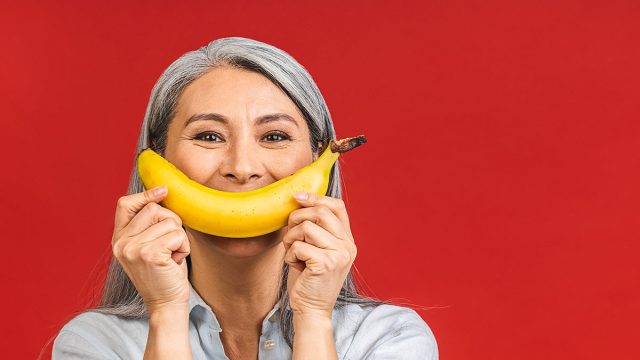
Bananas are the most popular fruit in the U.S. for a good reason—they're "nature's perfect snack." Packed full of nutrients, bananas are beneficial for people of all ages but carry specific benefits for those over 50.
According to the Cleveland Clinic, one medium-sized banana contains, on average:
- 105 calories.
- 1 gram of protein.
- 28 grams of carbohydrates.
- 15 grams of (natural) sugar.
- 3 grams of fiber.
- Less than 1 gram of fat.
So why are bananas so important, and how do they impact health? Here are the benefits of eating bananas every day after 50.
Fiber
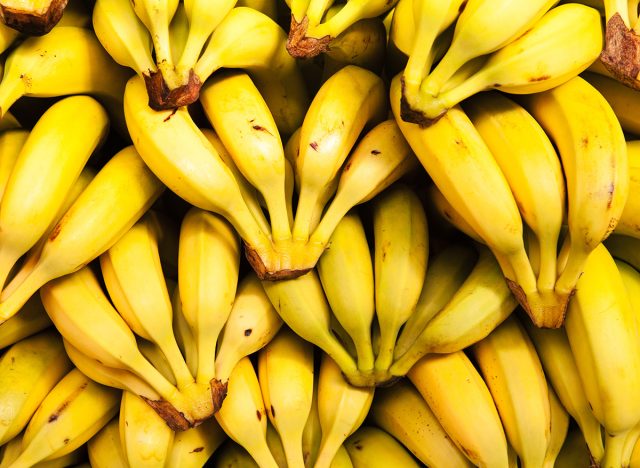
One banana has approximately 3 grams of fiber, which is great for improved digestion and disease prevention. "Researchers who looked at data from nearly 200 studies found that people who ate 25 to 29 g of fiber a day had up to a 30% decreased risk of colorectal cancer, heart disease, high blood pressure, high cholesterol, stroke, and type 2 diabetes," says the Cleveland Clinic.
Vitamin C
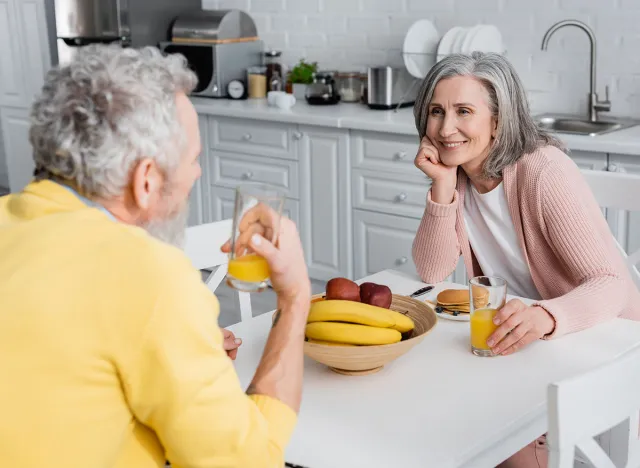
Vitamin C is important for iron absorption and immune health, which is important at any time, but especially when you're 50 or over. "The Age-Related Eye Disease Study found that a combination of vitamins, including vitamin C, helped slow the progression of macular degeneration, an age-related eye disease that causes vision loss. But we don't know what benefits, if any, are conferred by vitamin C in particular," says Robert H. Shmerling, MD.
Vitamin B6
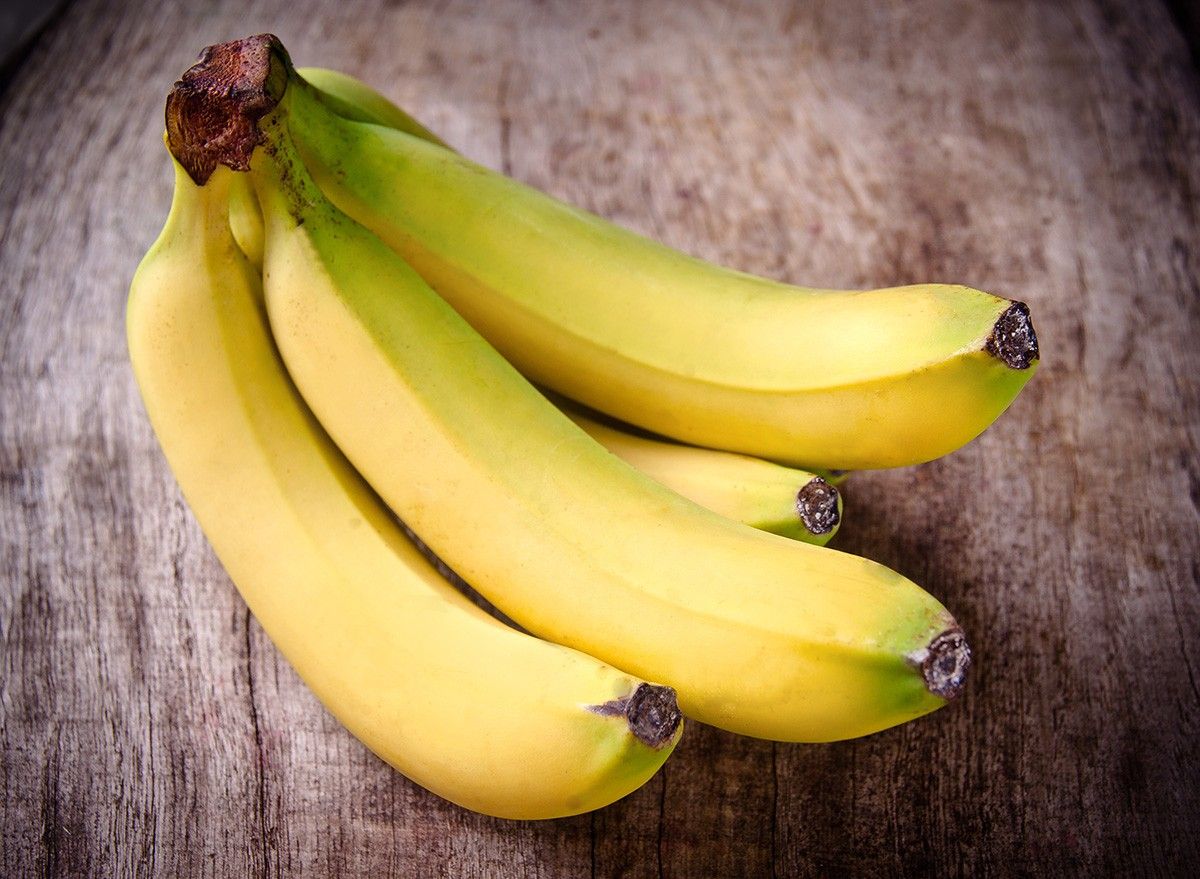
Bananas contain vitamin B6, which is important for healthy aging. "Adults aged 51 and older have higher vitamin B6 needs than younger adults," says the National Resource Center on Nutrition & Aging. "Men need slightly more than women in this age group. It is important to get the right amount of vitamin B6. While vitamin B6 deficiency is rare in the United States, some individuals may not consume the amount they need. Vitamin B6 deficiency can cause anemia, cracks in the corners of the mouth, swollen tongue, depression, and poor immunity."
RELATED: We Are 55, and These 15 Fat-Blasting Habits Keep Us in the Best Shape of Our Lives
Potassium
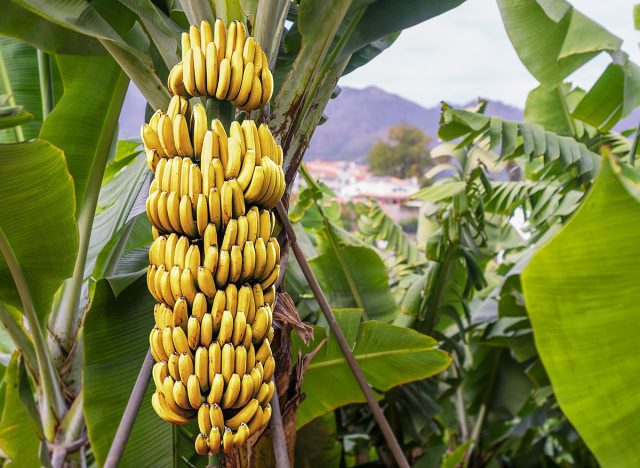
Bananas are high in potassium, which can help with age-related conditions. "Higher potassium consumption from foods, especially fruits and vegetables, may lower blood pressure and the risk of heart disease and strokes," says Harvard Health. "High blood pressure is a leading risk factor for strokes, so it's no surprise that higher potassium is also associated with a lower stroke incidence. One prospective study that followed more than 43,000 men for eight years found that men who consumed the highest amounts of dietary potassium (a median of 4,300 mg per day) were 38% less likely to have a stroke than those whose median intake was just 2,400 mg per day."
Good Energy

Bananas are a great source of healthy energy. "Researchers found that bananas have additional benefits not found in sports drinks, and those are antioxidants, as well as a healthier blend of sugars," says Harvard Health. "Bananas, which are also good sources of vitamin B6 and fiber, were favored by some cyclists who didn't like the idea of consuming a sugar-sweetened sports drink during their workouts."
Tryptophan
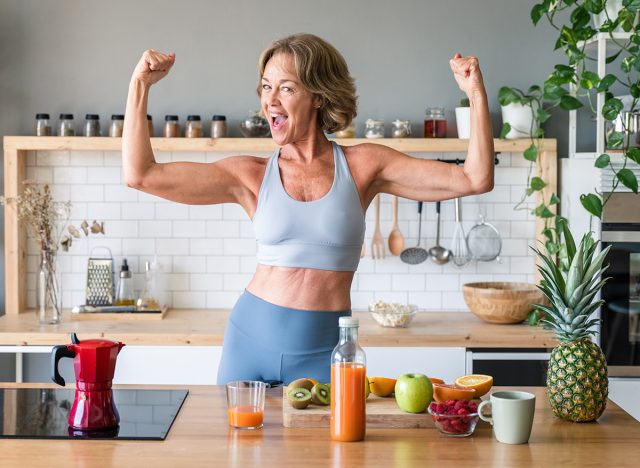
Bananas contain an important amino acid called tryptophan. "Your body uses tryptophan to produce 5-HTP, the compound that makes serotonin and melatonin, two mood and sleep-regulating neurotransmitters," says Western Michigan University. "Bananas also contain magnesium, which further increases sleepiness, making them a great bedtime or midnight snack."
Electrolytes
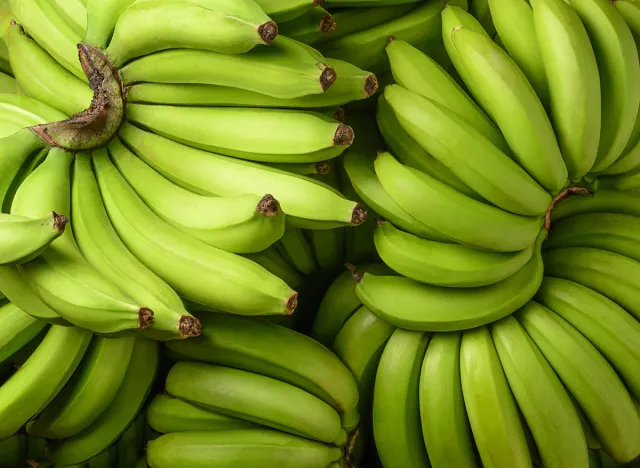
Aside from potassium, bananas also contain magnesium and phosphorus. "The heart can't pump without electrolytes. If you think of the heart as a lamp, electrolytes are like the electrical circuit, generating the current that keeps the light burning steady and strong," Lynne Braun, PhD, CNP, tells Rush University Medical Center. "If the connection is weak or disorganized, the light might flicker rapidly or dim — it won't work properly. If you unplug the lamp, it won't work at all."
RELATED: I Dropped Over 190 Pounds in 2 Years. Here's How I Did It
Prebiotics
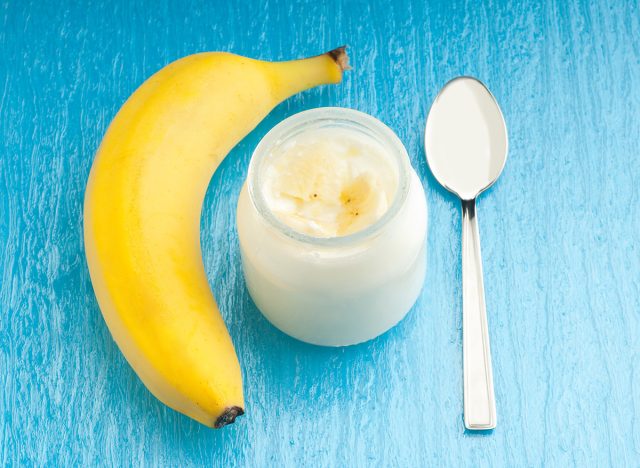
Bananas are rich in resistant starch. "Your body can't digest resistant starch," Elyse Homan, RD, LD, tells the Cleveland Clinic. "Instead, it's a prebiotic that promotes the growth of good bacteria in your colon." And if you enjoyed this article, take advantage of these 20 Superfoods for People Over 50.




